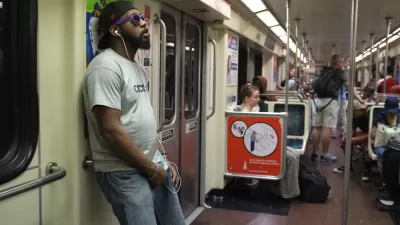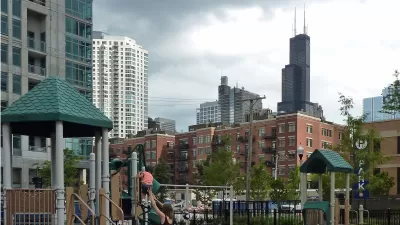The availability of information in the city is creating a new opportunity for adaptive and interactive urban spaces. As Carlo Ratti of MIT's SENSEable City Lab discusses, the key is people.
"The city already contains actuators such as traffic lights, remotely updated street signage, etc. More profound actuation is relatively problematic: for instance, we cannot double the size of a street in real time if we detect traffic congestion. However, unlike other real-time control systems, cities have a special feature: citizens. By receiving real-time information, appropriately visualised and disseminated, citizens themselves can become distributed intelligent actuators, who pursue their individual interests in co-operation and competition with others, and thus become prime actors on the urban scene. Processing urban information captured in real time and making it publicly accessible can enable people to make better decisions about the use of urban resources, mobility and social interaction."
FULL STORY: Digital Cities: 'Sense-able' urban design

Alabama: Trump Terminates Settlements for Black Communities Harmed By Raw Sewage
Trump deemed the landmark civil rights agreement “illegal DEI and environmental justice policy.”

Study: Maui’s Plan to Convert Vacation Rentals to Long-Term Housing Could Cause Nearly $1 Billion Economic Loss
The plan would reduce visitor accommodation by 25% resulting in 1,900 jobs lost.

Planetizen Federal Action Tracker
A weekly monitor of how Trump’s orders and actions are impacting planners and planning in America.

Study Links Covid and Poor Driving
The effects of the virus, including ‘brain fog,’ can make driving more difficult and dangerous.

Waymo Gets Permission to Map SF’s Market Street
If allowed to operate on the traffic-restricted street, Waymo’s autonomous taxis would have a leg up over ride-hailing competitors — and counter the city’s efforts to grow bike and pedestrian on the thoroughfare.

Parklet Symposium Highlights the Success of Shared Spaces
Parklets got a boost during the Covid-19 pandemic, when the concept was translated to outdoor dining programs that offered restaurants a lifeline during the shutdown.
Urban Design for Planners 1: Software Tools
This six-course series explores essential urban design concepts using open source software and equips planners with the tools they need to participate fully in the urban design process.
Planning for Universal Design
Learn the tools for implementing Universal Design in planning regulations.
Caltrans
Smith Gee Studio
Institute for Housing and Urban Development Studies (IHS)
City of Grandview
Harvard GSD Executive Education
Toledo-Lucas County Plan Commissions
Salt Lake City
NYU Wagner Graduate School of Public Service





























